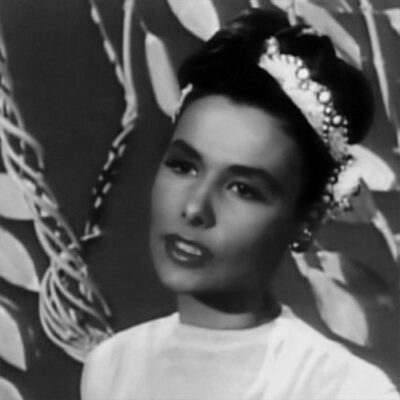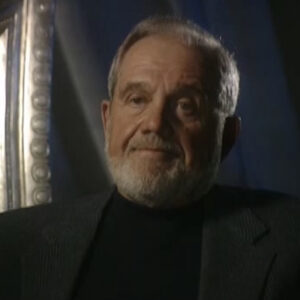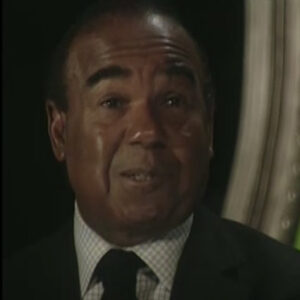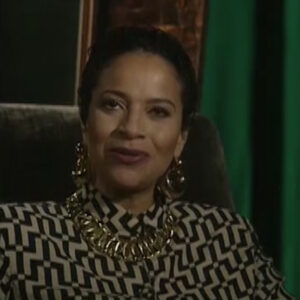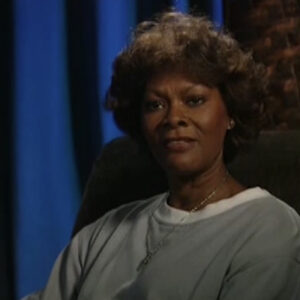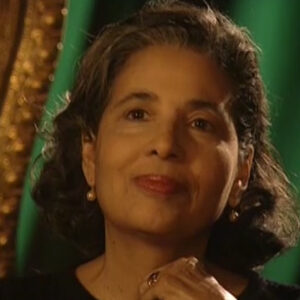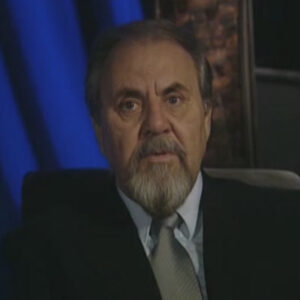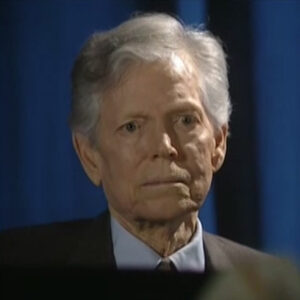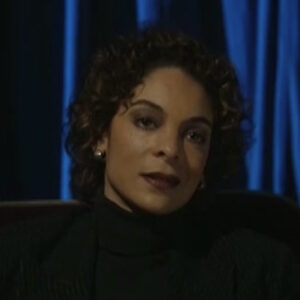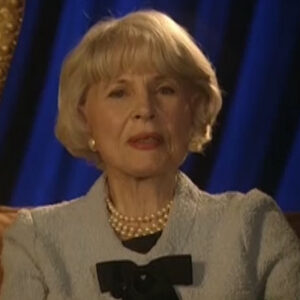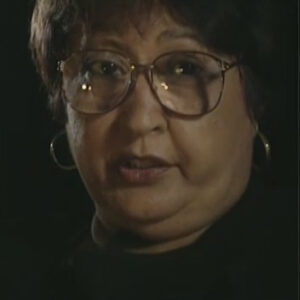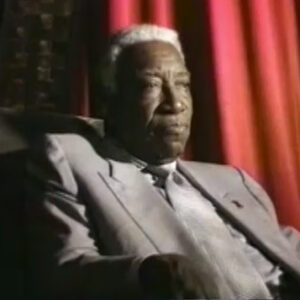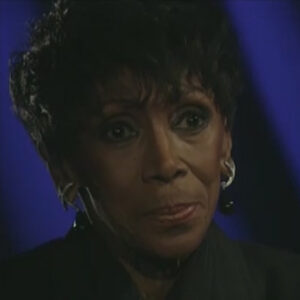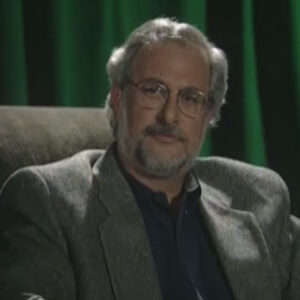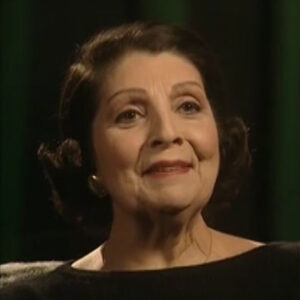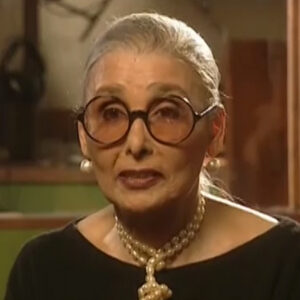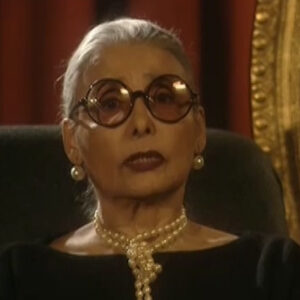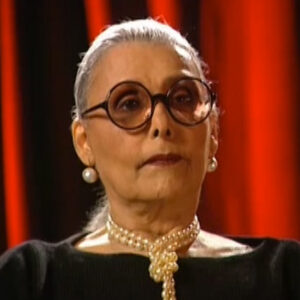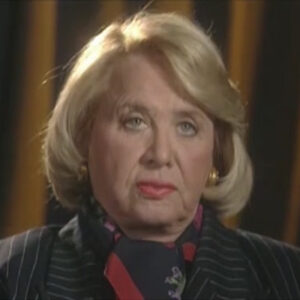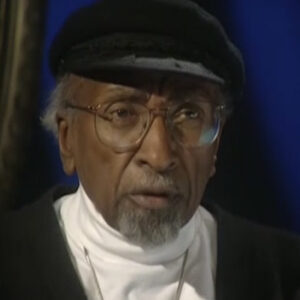Speaker Mr. Lewis, yes, ma’am.
Speaker Could you tell me about Jamaica, how it first started, I understand originally, Harry, but it was they had designed it for Harry Belafonte. Could you tell me about that?
Speaker Yes. Well, I can tell you about how. Jamaica started because I wasn’t around then, I was a long time ago, but I do know that Harry Belafonte, who was a dear friend of mine and as you know, one of the top singing stars of his time, and I was always looking for a book show that we could do together because he had wonderful recordings, of course, as you know. And I had done a lot of speeches and writing, as you know, on my subject.
Speaker And what we wanted to do was to find material. We could make a book for a musical. We said we would have no trouble at all with the music because there was enough music around that could be used for good musical, but there wasn’t really good material for a book. As a matter of fact, the book that they were working on, I think Harry Belafonte had been working on it and he finally.
Speaker Gave up on it and we said, let’s read it, whatever it is, maybe we can adjust it and we read it and we decided that it would be quite possible to work on that material and develop it into a book show for Lena Horne to star in and for me to to play the male part with her in a musical, which is exactly what we did.
Speaker And we took that Harry Belafonte a book and rearranged it. It needed rearrangement anyway.
Speaker But now we are Vidas. Arrange that for all our people, for our leading singer and for myself and for other people like Josephine Pomace that we were working with and so on. And we made a book show out of it. And that’s how the book show of a production came together.
Speaker Who wrote the who wrote the music?
Speaker You what? The music. Yes.
Speaker Tell me about who composed the music.
Speaker Well, who compose that, everybody knows that.
Speaker Are you there ready?
Speaker Harold Arlen, Harold Arlen, a famous name, I would never have forgotten how old Arlen wrote the music and the book that we gather together was Who? Yip Harburg, Yip Harburg and one other, wasn’t it all just Yip Harburg?
Speaker Well, we all remember Yip Harburg and Harold Arlen wrote the book and the music, and we took the book and score that Harry Belafonte had been working on. And we arranged it for Lena Horne, who was looking for a musical with to do with me, where she would do the musical end of it and I would do the talking. And we found this material and we worked on it and made it into a book which was never really a perfect book, but it was useful enough and the music and lyrics were just marvelous. And we did that show. And that’s how Lynne and I got together on Jamaica, which I believe I got up on the stage of whatever theater that was. Do you remember you were born then, but you must remember from before you were born, what theater was that?
Speaker But tell me, how did the Ricardo Montalban into this?
Speaker What do you say? How did Ricardo Montalban get into the cast?
Speaker How did he get into it? That’s a good question. If I knew the answer, I’d be happy to tell you we were friends as Leon and I were friends and as Ricardo and Lena and I were friends.
Speaker And we were always looking for material because we all were performers who were well known performers. But what we wanted was a book show, as we called it. In other words, to get the good music that we had and to find a book that would support that. And we would then have what we call the book musical.
Speaker And that’s how the three of us now I actually had it.
Speaker I’m now thinking in my contract and I know that Lena did too, which was that she would only do a book musical if I was in charge of the book and I had it in my contract that I would only do a book musical if Lena was in charge of the music. So we were bound together contractually to do a show together. And of course we both wanted Ricardo because we knew that he was one of the few male stars. We ended up, however, not with Ricardo, but with.
Speaker Nobody will know what you did end up with.
Speaker Now, yes, ma’am. Tell me about this cast.
Speaker It was a splendid. Yes, well, Lynne and I were friends. I can remember when we first met, it was before we were born. And Ricardo and I were friends and she was friends. He was friends of both of us.
Speaker And I remember the day that we all met, but we were all friends and we were all looking for this thing called a book musical, because we all were musical performers on the stage.
Speaker But we needed material to make a whole what we called a book musical, which would not be just a series of numbers, but a series of numbers held together by some basic idea. And so that’s how we found our material to work on, which was what’s his names, a musical which he gave up, which I just told you what? My memory is so great because I just told you I’ve forgotten that Harold Arlen Yip Harburg and Harold Arlen like. So why didn’t they do that for Harry Belafonte? I think they did. They did. And Harry Belafonte was not satisfied with the book and gave it up. And we looking for a book, read it and felt all of us felt that it could be adopted. The part that they were written to, star Harry Belafonte, could be adapted to star Lena Horne, who was probably the biggest singing star, certainly in this country and maybe in the world, and along with Marlene Dietrich and Greta Garbo was, in my view, one of the three most beautiful women in the world, too. And we had her there. All we needed was a book with a part for her to to play. And we found it in that book of Harry Belafonte’s. And it was changed into a starring role for a man, into a starring role for a woman for Lena. And the writers voted with Lena in mind. We voted with Lena and mine, and they adjusted the music naturally to work for Lena’s voice as opposed to however, Belafonte’s voice.
Speaker And so the book and the music of Jamaica finally came alive as we worked on it, and we decided to open it. And I can’t remember the name of the theater, but I remember the first night was the time that Lena Horne spoke.
Speaker I did not say sing, but spoke. On a human stage was the opening night of Jamaica after we had rehearsed how on this show up until that time and you can ask Lena if you don’t believe me, she had not even announced the titles of her songs before she sang them. She had never, in other words, spoken a word on the stage. She had only sung and was, as you know, one of the greatest, if not the greatest in the world at a musical songs. And so now she had a book.
Speaker How did you get her? I mean, here she is, a novice as an actress. Yeah, I had that chance. Yeah. So what was your job in order to get her stage ready for you?
Speaker I could never in my life have thought of her as a novice. I would say that this great artist whom we all knew and loved and we knew was the best in the world, was going to finally get to play a part on the stage instead of just singing in nightclubs and things like that. Concerts, which she had been singing and was famous all over the world for. We needed some material to get together. But I never thought of her as being the first time she did anything because she was the kind of person who could do whatever she had to do. You just have to give it to her. And once we gave her that part, she walked out on that stage. And do you know? That she not only delivered her dialogue as though she had been acting all her life, but for her first part. She had to have a West Indian accent. Now, imagine it’s hard enough for a person who’s an actress to work on an accent and presented in a leading part in a speech, that is not the usual thing. But here she was doing this for the first time and was going to do it with the West Indian accent. She conquered the West Indian accent. And I wish I could at this moment think of the name of the man in the chorus. Now, Lena can tell you who coached her in her West Indian accent because he was West Indian and he had the authentic, not that he spoke at all at the time, but he could easily have the West Indian accent, which she required by coaching her in the parts as I was preparing her with the scenes on the stage. But he was an authority on West Indian dialect and she accompanied accomplished it like that. And when she did her part, a lot of people thought that she was herself West Indian who was so easily done without the kind of accent that you usually get when somebody is trying to speak in a way that’s not their normal way of speaking. Everybody felt that she was a Western actress.
Speaker OK, well, before you before you actually opened. Yes, there was a whole lot of trouble.
Speaker Oh, trouble. While every musical has trouble, I want you to tell me a musical that got together without trouble. I’ll be happy to revive it. There is no such thing because the book person wants to get all our stuff in the music. People want to get all that stuff in the dancer’s insist that there be this dance in the middle of what we feel would ruin the progress of the show and so on. There was nothing but discussion and argument in the preparation of a musical for the theatre because there are so many departments in it. And each department, including the costume people, the lighting man, everybody feels that unless their thing is given that attention, the whole show might as well not be done. So it requires a director. Of the kind of quiet simplicity of myself to keep all these people from killing each other and from killing me, of course. So it was a tough thing, but it wasn’t anything all that unusual when people read now about how tough it was putting Jamaica together. And I think back over the years of the musicals that I did, I can think of one that wasn’t tough to put together because each department has an authority in it instead of a play where you have the playwright, the director and then the performers. But in a musical, you have composers, you have designers, you have choreographers, you have all of these people, each one of whom feels that their thing is the savior of the show. So it requires a director to be a very good liar. And I was the greatest liar you ever saw. I told them all that they were great and that couldn’t be done without their wonderful contribution to it and so on. And we got it on that way. It has to do so much with the ego, you know, because each department has a head. It isn’t like if you’re in a play and you are an actor of with too actors, you’re one twentieth of the show. But here each person is the director of their Department of Musical. So that’s where the difficulty lies. Yes, ma’am.
Speaker What are some of the other musicals that you’ve done?
Speaker Oh, my God. You should have asked me that before we started the interview because I could have boned up on it myself. But there were so many because I started way back in the beginning of the 30s when I was an actor and Miss Lagardere and Civic Repertory Theater, I organized a group in the basement of the Civic Repertory Theater, and we started to put together shows and egg on Brashear, who was one of the character actors, and Mr. Galan’s company. He became our director and coached us. And I started this whole business of putting together words, music, movement, lighting, scenery, everything to make a unified whole out of the book of a show which was not very well known at that time. So from that time until this, I have been trying always to get together people who could not only be expert in their field, which was a specialized field, but who are willing to contribute to the whole idea of a musical which has all of these elements in it.
Speaker Well, moving back again to the particular trouble in Jamaica, in Philadelphia, it seems that all all hell broke loose. Do you remember that?
Speaker I certainly do, but I can’t remember what specifically you mean, since every moment of our waking life was hell. And I can’t get anything specific, except that at that time, I thought that all of musicals out of town were like that, that each department was feeling that their department was being not given enough. OK, you understand what that gesture means, which is this is this going to be filmed or or boys because of its voice? This doesn’t mean anything. Yes, ma’am.
Speaker Your eyes can hear. I need you to take your hand down so that we can see what. Darling, take your hand down.
Speaker Oh, well, I can see you then. So you have to speak up because this light blinds me. So now you’re just a hole. Oh, it’s.
Speaker Well. There was a book problem and was yes, and it was lousy.
Speaker You mean Lena was very upset. You were telling me how she would say, I can’t say this crap.
Speaker Could you could you tell me about that? Do you remember that?
Speaker Yeah. Yeah. Well, I’m sure she said that on every line. But that’s not unusual with Lena because of actors like Lena, who speaks so beautifully. Her own way of talking has to play a character part for the first time in her life. Speaking on the stage because it was Lena who had never even announced one of her numbers in a nightclub, she had never spoken to the public with her voice speaking voice. She only sang somebody introduced her numbers and then she got up and sang them. But this time we were trying to involve her by not only getting her to announce her numbers, but to talk about them to the audience. So we made a kind of unity of the book and the music in the movement and so on, which is what I was interested in as a director. The other people that I was with were also interested in and so was Lena. So we all were working toward that. So by the time Lena spoke of first word on a human stage, even though she was a world famous star, she had never spoken. She had only sung on the stage. But now she was gonna go up there and play the first line of her part in a play called Jamaica, which was the book of the musical Jamaica, which was the first musical show that she was in. And so it was a moment for her. And she had also to learn, as I think I told you, to do it on a West Indian dialect because she didn’t speak the way this character spoke. And so she had to learn to speak with a particular accent. So that was an added burden. And that would be difficult for someone who was an accomplished actress, who had been acting a lot of time and playing different parts. She had never played any part. She had only sung the lyrics of all these wonderful songs that she was famous for. But now she was going to talk and play scenes which did not necessarily have singing in them, but which was spoken scenes.
Speaker Well, let me ask you. I remember when we when we spoke together. Yes. You were telling me how much fun you had in Lena’s dressing room. Could you tell me about that, Josephine from the stand?
Speaker Well, I can’t remember what particular fund, but I can tell you, knowing myself that I have fun in everybody’s dressing room, because I think that people who make the theater are kind of serious thing like that. That’s an attitude that they bring to it is what is so awful in our theater because it has no fun in it. It has no joy in it, it has no laughter in it, as well as anything serious that it might have to say. And I’m against that. So I try whenever I direct a show to get people who have some sense of fun. And we can as we prepare it, even though it might be a very serious scene, have some attitude of joy in it. Let’s put it that way. If you object to fun, because I don’t object to fun, but some people think that one should be serious. But you can be serious and be joyous as well as being serious and being pompous, which is what I am against. Yes, ma’am.
Speaker Do you remember that David Merrick wouldn’t give an opening night party?
Speaker David Merrick would not give an opening night party. Did you all hear what she said? David, are you listening?
Speaker They never forgot.
Speaker And they never forgave you because every show that we had been in, there was an opening night party, you know, even if it was in somebody’s apartment. But you want to get together on the opening night and wait for the notices to come out or go to Sardi’s at least, and wait for the notices to come out. But there is that opening night thing. But David Merrick was not interested in that joyousness of it. He just wanted to have a hit and he didn’t know whether or not he had a hit until he read the notices, because that’s the way producers are. Is that kind of producer was at that time, which was that if you got the public and you had a hit, not necessarily having anything to do with the quality of the show, but having to do with something attractive to the audience. For example, you could have a very popular star in a leading part and the play could be lousy. And yet because that star is in it and everybody wants to see her or him because to see them other than that, they would have had to pay 50, 60, 70 dollars in a nightclub. They had never been on the stage. And here they could buy a ticket. I don’t know how much the tickets were then, but let’s say they were 20 or 25 dollars. It was still much less. You could buy a ticket and have them on the stage the whole night for you than to pay 75, 80 dollars to hear them sing a couple of songs in the nightclub. So that was valuable to to the producers. What was your question?
Speaker Do you remember that Layna paid for the night for the. Do I remember what I paid for the opening night party herself?
Speaker You bet. I was going to say your ass, but I know you can’t say that on television, so I won’t say it. But you bet your ass she paid because David Merrick was not going to give an opening night party. And when Lena, who loved all the actors and whom all the actors loved. Like they would love the greatest performers because she was one of the greatest performers in the world, not only in America but along with, let’s say, Marlena Dietrich, Greta Garbo, the greatest stars in the whole world, Lena Horne was up there with them and we had her. So Mr. Marik didn’t care about that part of her famous life in the theater. He was interested in the fact that if he had Lena Horne, he would sell a lot of tickets to people who normally would have to pay 75 dollars to see her in a nightclub and could now see her for 20 or 25 for a whole evening of songs. And he knew that that was a good thing. So that was why he put the show on. But he still knowing all of that was not going to give us an opening night party.
Speaker And we got together and said. We are going to give an opening night party, the actors, and we are not going to invite Mr. Mark.
Speaker And that would have been the first time that that happened, except Mr. Merrick was smarter than we were because we worked up this wonderful opening night party, try to keep it secret, told everybody where to go, et cetera, and so on. And then why does the party got underway? Who walked in by Mr. Merrick and said hello and behaved as though he was giving the party?
Speaker Because usually producers gave the party, but we didn’t even invite him. But he was there as though he was the producer of the show. And that is the story of how Mr. Marak became a leading producer in the American theater, because you have to be part cook to to do anything, I suppose.
Speaker And that was the story of David Mack. Could you tell me about four more bars?
Speaker Four more bars.
Speaker All right, well, what happened was this we were on the road. Now don’t ask me if we were in Boston, Philadelphia, Baltimore, it doesn’t matter, but we were on the road and.
Speaker Rewriting is what goes on in a musical.
Speaker No one has ever written a musical, but everybody has rewritten a musical and we were one of those having our musical rewritten on the road. I don’t think anything was done at all about the music as far as I remember. Everybody loved the numbers and so on. I don’t think that anything was done about the movement, the dancing, the ballets. I can’t remember that being changed, although they always the little things that you do when you’re rehearsing, but the big problem, apparently, as I remember it now and as I say, I’m not sure of the city that I meant was the book. There was always a problem with a book and any musical. We were not special in that way. But in this particular case, we were getting close to the opening on the road in the city of Boston, Baltimore or Philadelphia, wherever we were. And we were getting close. And the book was being worked on by the book writers and the director and producer and the actors and everybody. And what happens is that everybody has another idea as to how to fix the book or fix whatever it is that they think is wrong with the book. So that was what was going on. It was nothing particularly unusual, but it was particularly. Is there such a word as virulent, if there is, and I’ve just made one up ill and maybe I just being violent because there was a lot of fighting going on between the various departments of the musical about what to do about this or that problem with the book. Now, Mrs. Arlen, who was the wife of the book White House all and wrote the book that night. Yeah, right. Well, this was Mrs. Arlen. I can’t remember her first name, but she was along with us. And she was worried because in their room where they were in the hotel, she knew that her husband, Harold Arlen, was not well and she was there really to take care of him. And then the other room, everybody was fighting about this or a little word or this or that phrase or should they change this? And then they’d come in and ask her husband a question. He didn’t want to join the fighting because he really wasn’t well enough. But he would send his answers in as they wanted to know what he thought about this, that or the other. So at this point in the show, I remember they were close to opening on the road. In whatever city we were in and it was close to the road opening and still the book was not the finish, the book of the musical needed something more to work so that the the messages would go from Howland’s room to the room where the rest of the people connected with the show, the rest of the book writers, the composers, the producers, the leading stars, all the people were there because they needed to get that book finished so they could open on the road and then maybe work on it until it came into New York, which is, of course, what happens in most musicals.
Speaker So. Messages were sent back and forth to Howland’s room of corrections that they wanted, and then his wife, Mrs. Ahlem, would give them the talk to her child and give them the answer. They would carry it back to the room where everybody was screaming and yelling at each other where she didn’t want him to be because he was not well. So, OK.
Speaker Now it came up to a certain point where everybody felt that nothing more could be gotten out of Mr. Arlen, but they said they were going to try for one correction that they had to have. So they sent the person in to the room where Mrs. Holland was, and they said that they needed this line, changed to something else, whatever it was.
Speaker And she gave them the new line after talking to Howard about it. And then as the guy went out of the room and was going to carry her back and did carry it back to where the fighting conference was going on, she said, you tell those people my husband has only four more bars left and.
Speaker In other words, he’s got to die.
Speaker After he gave them the next four bars if they wanted a change, but that was all because she figured unless she did something like that, they’d be there forever. So she said four and it got to be known as four more bars, because in the next thing they would say, listen, we have to have something from how old do you think he can get it?
Speaker And for Ballhaus, four bars became the thing then that we all were dependent on, because if we didn’t get those four bars, why the show was going to be closed by Mr. Marichal was sick of us. That’s the four bars story, as I remember.
Speaker And was doing all this yelling and screaming about the book with Lina yelling and screaming, oh, we all were yelling and screaming, she was the most beautiful yelling and screaming because she had the best voice of that of anybody. No, of course, she kept saying, as we all kept saying, when and what kind of a fight, she says. I’m not gonna say that stupid line that you have given me, and indeed we did give a stupid line, so then they said, well, we like that, then wish they would bring back something else and they’d show it to Lina because she says, well, this is not stupid, but I’m not gonna to say whatever it was. It was going back and forth and back and forth. And that was Paulina who had to decide because she’s the one whose voice and whose presence is going to be in front of the public so we could fight all we want. And she had to be sure that her part was not going to be scrambled. So that was the of the business of performance lowballs.
Speaker Just one last question. Two more.
Speaker You had told me, oh, let me just get this. Under the under the transom story, oh, you were walking along. Yeah, I heard you happen to hear that they were going to close the show.
Speaker Yes, well, that’s you just said it in the question. You’ve given the answer, which was that what I couldn’t remember and still can’t and probably never will, whether it was I who was walking along the corridor. This is on the road. I can’t remember whether it was Boston, Philadelphia, Baltimore or whatever city we were on the road in. And there was a room, a large room where the various people connected with the show, with the rewriting of the book. Nobody ever wrote the music, as far as I remember. But there was a problem with the book and everybody was making suggestions. And that was going on in that room. Then in this room along the hall was Harold Arlen, who was the writer of the book. He was not in the in the fight because he was not well and his wife was with him, as I remember, and she was in their room together. Now what? I can’t remember whether it was I or somebody else who remembers this, who was walking along the corridor and the transom of the room where the meeting was being held was open. And they heard them talking and they’re planning to close the show.
Speaker And so this person and whether it was me or somebody else I can’t remember not too long ago, are announced to the people who are fighting over these last words of the day of the book. Right. That they will want to close the show. Well, that speed up everything immediately, as you can imagine. And they said, well.
Speaker This is the last correction he’s going to give them because now he knew how old Arlen, I thought that if this was not acceptable, they were going to say, well, the hell with that, let’s just close the show. We can’t work on it anymore. So anyway, he gave them his idea of what this line should be that they were looking for.
Speaker And then as Mrs. Arlen was carrying it back to the room where the meeting was being held, he she said to them, and you tell them when you give them this line that he.
Speaker Only has four more bars left in him.
Speaker In other words, she was saying that he could light up to four bars worth of of words and that he was going to die. This was it. This was it.
Speaker So she carried it back to them and told them what was said. And she said to them, he only has four more bars left in him. She says this was his wife. And so that’s how the phase four more bars came up. So they’re meeting any time anyone suggested something and somebody else said, no, he should say that or she should say that. They said, remember, we only have four more bars. So that’s where the phrase form or bars came up was Mrs. Arlen.
Speaker I can hear what she’s saying, what she’s saying, but I want to talk about, yes, the parties leader and lineis house, the party at the parties, at llena, Leanna’s house.
Speaker I mean, the horns house. Yes.
Speaker Where you can go to parties at least as well.
Speaker Who you would go to parties at Lena’s house. And her husband, Lenny Hayton, was there sort of sitting around. Yes.
Speaker You would describe that to me. That.
Speaker How fun loving Lina was, how her husband sort of wasn’t quite as much in on the fun as as everybody else was, and I just wondered if you can remember being at their house. You also told me about Paul Robeson being there and the food was so good that he told her.
Speaker We know this is so good, you must have sat in it.
Speaker Oh, that’s the food. Yes. Oh, that was the food. Yes, that was the dinner. Yes, the dinner. Now, I can’t remember what the dish was. Do you remember that? No. Well, I guess we had soup and then we’ve had a course, I guess the main course of regular dinner there.
Speaker Tell us where you were.
Speaker I just need to. Wasn’t this the Lina’s house? Yeah, well, we were in the dining room and at one end of it, sadly, and at the other end sat her husband. And around the rest of the table was the rest of the people from the show. Right, and, oh, Thomas, that was his name, the fellow who made the remark was something Thomas Thomas was his last name, not his first name, not Ed Thomas.
Speaker Something like Clive. Clive Thomas. No.
Speaker No, not Clive, I wouldn’t forget Clive. Well, anyway, his last name was was Thomas and he was very funny and we all loved it. Well, we all loved each other. Let’s face it, it was a really loving company as I remember it. And that’s because Lena was the head of it and everybody loved Lena.
Speaker I mean, you could not not love her.
Speaker So anyway, whatever it was that we were eating at a certain moment, I said it was I said, Lena, she had cooked the dinner, by the way. I said, this is so good. You must have sat in at.
Speaker I remember that and everybody thought that was so funny, and I guess it was, but that’s the line I think that you were asking about, wasn’t it?
Speaker Yeah.
Speaker Do you remember her husband, Lenny?
Speaker Oh, Lenny. Yes, indeed. I remember a very nice man. And I don’t mean that patronisingly at all, because if you are Lena Horne’s husband, you have to be something less than Lena Horne, because nobody, as I always say, with the possible exception of Marlene Dietrich and Greta Garbo, could possibly be placed in any category with her much less above. So nobody there would feel anything but proud to be there and to be mentioned along with her. But nobody would say, you know, they were better than Lena and any thing at all, not only in music and singing and so on, but in life and and and in knowledge and in theater knowledge and and fun and all the things everybody loved because she was lovable. If there was nothing. Hoppity about her at all. She just was one of those great people that you will never forget, never forget.
Speaker As I say, along with other people, like the only other two I can think of on that level, a world level or Garbo and data, because I know a lot of famous people all over the world. And those three are the ones that whose name is known around the world as being the tops. And whatever it is that they did, they’re not all sang the way Lina did. They never liked the way the others did and so on. But it didn’t matter. They were the tops. So that’s all I can tell you about Lena. And to be her friend was not to be an all star like that, but to have fun with her, which we all did. And her husband was a very nice man. I don’t want you to think there was anything wrong about the fact that he was not the article, the way we all while we were all actors or or musicians or something or other composers.
Speaker And he was a businessman, wasn’t he? No. What was he? He was a musician.
Speaker A musician who was it was arranger or conductor. But you would said that even he sat around, he was more like the papa.
Speaker Yeah, why tell me that? I remember that. Yes, that he was you know, he was not in on the fun jokes and things that people in show business are, you know, but he was, as you say, a musician.
Speaker I’d forgotten what he did, actually, because we had not much contact with him except when we were in his house and he was there, but he was not part of our fun theatre group.
Speaker And you know what I mean when I say group, because they were all people who somehow belong to the same kind of theater and he was not like that at all. Now, I can’t remember what he played or anything or whether I ever heard him play anything.
Speaker I can’t remember that.

